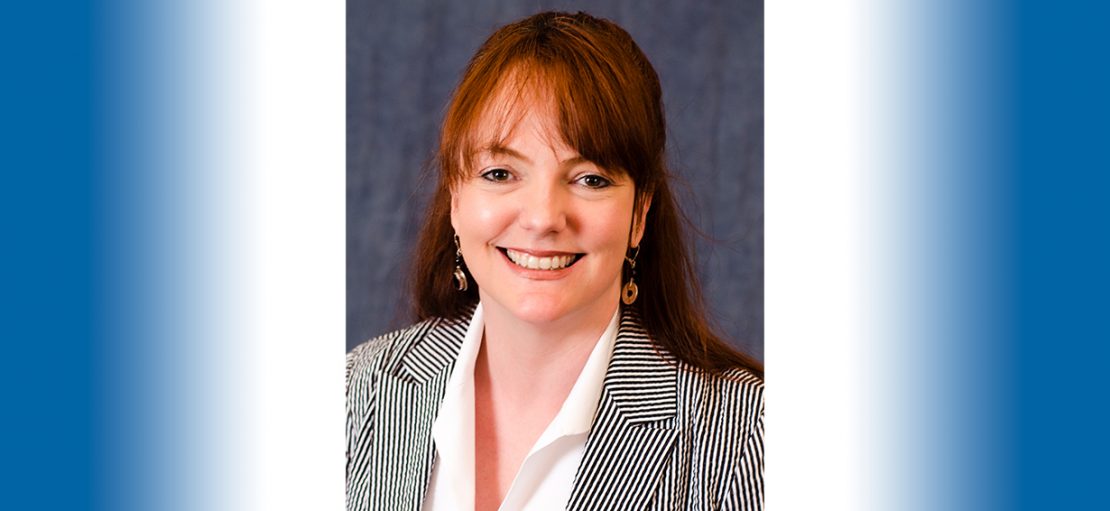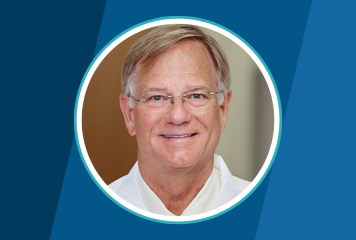Laura D. Wingate is the Executive Vice President of Education, Support & Advocacy for the Crohn’s & Colitis Foundation. Prior to joining the Foundation, Ms. Wingate was Director of Operations for the Clown Care & Vaudeville Caravan Programs at Big Apple Circus, and began her career at Memorial Sloan Kettering Cancer Center. She has served on the ABIM Gastroenterology Board since 2018.
World IBD Day is observed each year on May 19, uniting people worldwide in their fight against Crohn’s disease and ulcerative colitis, known as inflammatory bowel diseases (IBD). In honor of World IBD Day, Ms. Wingate spoke to ABIM about her professional service to the IBD community, and the impact of IBD within health care.
You’ve had a varied career, from managing outpatient oncology services to providing professional entertainers to pediatric and geriatric centers, and now advocacy work for a patient organization. How did you get where you are now?
Well, I followed Robert Frost’s advice and took the road less traveled by! My dad has Crohn’s disease, but he wasn’t diagnosed at first even though he had symptoms. As my career in oncology and then professional entertainers advanced, my dad kept getting sicker. When I was looking for that next junction in my career, I wanted to go back to traditional health care. I saw an advertisement for the Foundation and it resonated because it meant I could help my dad and other patients. After being with the Foundation, I finally got my dad to a gastroenterologist and he was diagnosed with Crohn’s disease.
I’ve had an amazing career serving the IBD community. I’m passionate about helping patients find the right health care professional to treat them, and part of that is making them understand the importance of a credentialed physician who is maintaining excellence through ongoing education. ABIM ensures the best doctors are out there.
What does your work for the Crohn’s & Colitis Foundation entail?
I oversee an amazing team of educators who are typically master’s in public health or social work, and who provide patient education, professional education and support services—everything from call centers to traditional support groups, and camp for children with IBD. I also oversee a state and federal advocacy team.
I love my job because I’m never bored and I get to understand the needs of patients and health care professionals, and work to provide them with the resources they need—not only to get the best care but to deliver the best care.
What achievement of the Crohn’s & Colitis Foundation are you most proud of?
I’ve been with the Foundation for almost 16 years. In that time, through the efforts of amazing advocates and health care professionals, we’ve gone from an environment where diet and nutrition weren’t really considered part of treatment, to listening to patients and supporting research to understand the role of diet and nutrition—not only in the disease but also as a complementary treatment. What I’m most proud of is seeing the ongoing research of diets and the microbiome and how they interact, using diet as a complementary treatment to traditional surgery, having a recipe finder to provide patients with evidence-based diet and recipe recommendations…it’s monumental and it’s a great example of how patients knew there was more to diet, and partnered with the Foundation and the medical community to change the paradigm. It’s amazing how far we’ve come.
Why is the patient perspective important to you, and how does that connect to your work on the Gastroenterology Board now?
The patient perspective is essential. We want physicians to have the best knowledge, but also to equip them with how to engage a patient, how to understand a disease beyond its symptoms, the patient’s experience and their challenges accessing and engaging in our health care system. All of these things impact a physician’s ability to care for their patients. When I learned ABIM was looking for the patient perspective on their specialty boards to improve upon physicians’ experiences and support them, that mattered to me. I want patients to understand that it’s important to see a physician who is maintaining their knowledge.
Why is World IBD Day important for the IBD community and health care providers?
The incidence and prevalence of IBD is increasing worldwide, and it’s really important that all the organizations come together to increase awareness. These are still silent diseases for many—they’re private, people don’t want to talk about it. World IBD Day is designed to raise awareness and make it more comfortable for everyone to talk about. It’s also an opportunity to ensure that patients know there is a community there to help them. It’s a great time to highlight the health care professionals treating these patients. This year we are talking about diet and nutrition as part of the experience of an IBD patient and how this has become an area of disease management and focus in conjunction with medical and surgical treatments.
How do you want to see physicians engaging in World IBD Day?
For the general practitioner, I want to see them thinking about the symptoms of IBD and partnering with their community gastroenterologist to help patients get properly diagnosed. For the GI community, I want to see them raising their voices and demonstrating how important it is to care for people with Crohn’s and ulcerative colitis and the people who care for them. We’ve come a long way but we need to fund more research. We need better treatments and we need to ensure access for patients who need them.
What is a barrier for IBD patients who need care?
The biggest one right now is utilization management barriers that insurers and pharmaceutical benefit management companies put on patients and their physician, from prior authorizations taking months to approve, to unreasonable step therapy protocols, or telling a patient they need to start with steroids even though we know how damaging those can be. It’s taking the decision away from the expert and putting it in administrative hands that may or may not be qualified, and it’s leading to worse outcomes, like surgeries that could have been avoided if the patient had just gotten their medication in time.
What do you wish more physicians knew about IBD?
I wish more physicians who saw patients with bloody or frequent diarrhea thought to send them for a referral. We see patients not being referred to a gastroenterologist for three to five years from initial onset of symptoms. At the Foundation, we’re working hard to create a hub-and-spoke model where primary physicians consult with GIs back and forth, keeping the primary in the loop but getting that expert opinion from a GI.
The other thing is, I wish people knew there are foundations like ours to help not only physicians, but also patients. Use us. We’re available! Often doctors don’t have the time to educate patients. That’s what we’re here for. We have the time. We want to do that so health care professionals can do what they’re there to do.
Why did you want to join the ABIM Gastroenterology Board?
I saw a lot of alignment between what ABIM is doing in terms of supporting physicians delivering the best care and the desire for a patient voice. I wanted to join to provide that voice and that perspective—to ensure that we’re considering the socioeconomic perspective, the life of the patient, how to meet the needs of disadvantaged communities. That resonated with me and I’ve had an amazing experience.
What is the most important thing people should understand about the Specialty Board?
What I would like everybody to understand is that, as a patient and an advocate myself, I believe in the work of Maintenance of Certification. I believe ABIM is really listening to the community and trying to adapt the assessments to meet the feedback and concerns of the community. I don’t want to see a physician who isn’t maintaining certification, and I don’t want patients seeing a physician who isn’t maintaining.



